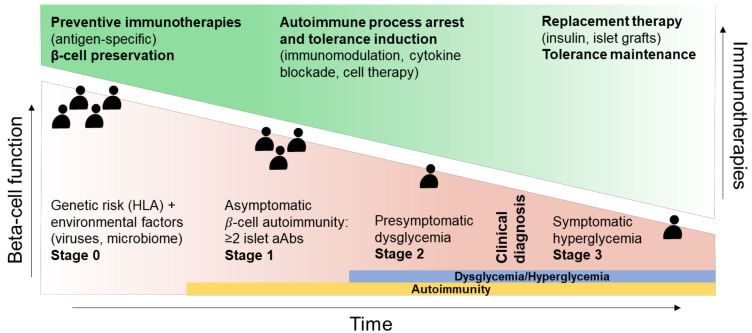Figure 1.
Stage-specific therapeutic intervention in T1D (type 1 diabetes). Stage 0 individuals, without aAbs (autoantibodies) but at risk for developing T1D owing to genetic and/or environmental triggers, are candidates for immunotherapies aiming at preventing T1D and preserving intact β-cell mass, such as antigen-specific and tolerance induction therapies. In subjects with stage 1 and stage 2 disease, characterized by the presence of one or more aAbs and a progressive dysglycemia, therapies aiming at dampening β-cell destruction and the engaged autoimmune process while favoring tolerance-promoting mechanisms (T-cell, B-cell depletion/inhibition/exhaustion, blockade of inflammatory cytokine signaling, adoptive Treg cell therapy) should be preferred. Therapeutic intervention focusing on replacing endogenous β cells by grafting pancreatic islets or in vitro differentiated β cells, together with tolerance-promoting drugs, should be reserved to stage 3 patients with clinically overt T1D and an advanced decline in β-cell number and function. Abbreviation: HLA, human leukocyte antigen.

